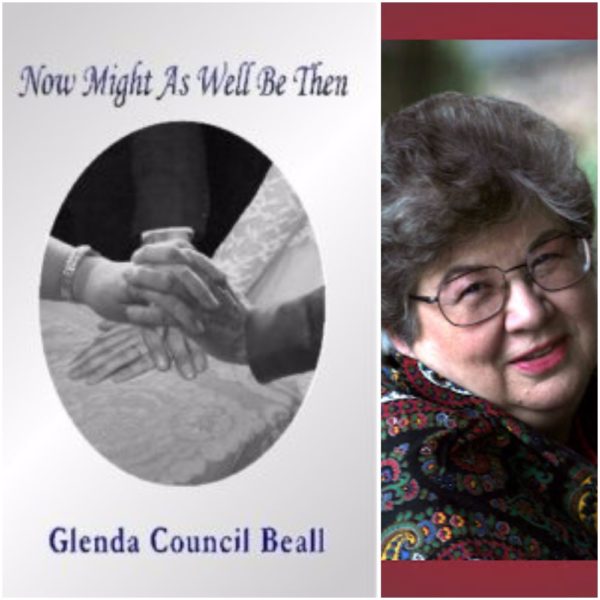Accepting what is to come
Friday, December 3, 2021
My Word this Week
Sunday, November 28, 2021
Thanksgiving is over, but good memories will linger.
Thursday, October 21, 2021
She had doubts that COVID was real, or as bad as the news made it seem.
I am saddened to hear of the passing of Colin Powell, a man who was a reluctant warrior who hated war, and was the kind of man we need in leadership. He admitted the error of going to war thinking the enemy had weapons of mass destruction. Although he stood with President Bush, his last public statement was a speech for Barack Obama. I read the book he wrote about his life and was compelled to send the book to a young man in my family because I thought Colin Powell's values are what we should all aspire to.
He died not from COVID but from cancer he was fighting and other health issues. He was vaccinated but caught a breakthrough case and because of his health issues, his age, 84, he could not recover. This reminded me of the article I quote below from Everyday Health, an online magazine I subscribe to.
FROM
EVERYDAY HEALTH
Although she says she was taking precautions against the virus (like social distancing and wearing a mask), Fekken admits she had doubts that it was real, or as bad as the news made it seem.
Then
she and her husband got COVID-19.
“I
didn’t have to go to the hospital, but there were days where I wondered if this
was the beginning of the end for me,” she says. “I’ve never experienced
sickness like that before. I’m a pretty optimistic, upbeat person, but COVID
made me feel hopeless because it truly shut me down.”
For
three weeks, the normally hurricane-level-busy Fekken struggled to walk from
the bedroom to the porch for fresh air — a distance of about 20 feet. She lost
her smell and taste, suffered from fever spikes that left her soaked, and
watched TV with her eyes closed because of ocular headaches. Every day, she focused
on deep-breathing exercises suggested by her daughter, a paramedic, but even
that was exhausting. Self-care meant simply surviving until the next day.
“We
know people who have died of this, including three people who were in my high
school graduating class, and once we started to feel better, I felt changed,”
she recalls. “I had a huge sense of gratitude and a new respect for the virus.
I started to appreciate everyday things I used to take for granted, like
walking down the driveway to get the mail, or being able to smell what I’m
cooking.”
Although
Fekken’s sense of smell has returned, she still can’t fully taste her food,
even six months after recovery. Her self-care now is more modest than it was at
the beginning of the pandemic, she says, but also more meaningful. She’s not
focusing on distracting herself during a lockdown, but rather on recognizing
the seemingly small moments and tasks she once did without thinking.
“I’d like to think I’ve always appreciated my life, but
getting COVID-19 made that take on a new meaning,” she says. “Everything I do
feels like a gift.”
**************************************************************************
This woman was fortunate to recover, but if she had been sick with cancer or diabetes or other serious illness, she likely would not be here today. And I wonder how Colon Powell was exposed to COVID. Did someone who was not vaccinated come to visit him, or did he come in contact with an unvaxed person by going to his doctor's office or the drugstore? Those of us who are older and have a chronic illness, even though we get the shots, are at the mercy of others. Love thy neighbor. Get the vaccine.
After being tested for COVID this week, I had to quarantine until I got results. This morning, early, I received a call telling me the test is negative. I felt I was not sick with that virus, but to have the test verify, makes me feel much better now.
Sunday, October 10, 2021
Writing Memoir - Six Questions that block the process
- Where do I begin?
- How can I possibly put everything in my long life into a book?
- How do I write about things that happened before I was born?
- Can I write unflattering truth about my family?
- What kinds of things should I write about?
- Why should I write about myself?
"Make a habit of reading what is being written today and what was written by earlier masters. Writing is learned by imitation. If anyone asked me how I learned to write, I’d say I learn by reading the men and women who were doing the kind of writing that I wanted to do and trying to figure out how they did it. I write entirely by ear and read everything aloud before letting it go out in the world." William Zinsser
If you want to write memoirs, read good books.
Best memoirs are character-driven and are written in
scenes.
Angela's Ashes - by Frank McCourt is character-driven
The Glass Castle – by Jeannette Wall is character-driven
Traveling Mercies - by Anne Lamott
Writing Your Life Story by Kelley Notaras
I would love to know your favorite authors and your favorite memoirs. What did you like about the books?
Saturday, October 2, 2021
The crucial ingredient in memoir is people.
William Zinsser says
the crucial ingredient in memoir is people.
You must summon back the women and men and children who notably crossed your life. What makes them memorable?
Why do we remember some things and not others? Why do we remember certain people in our past?
When we write our memories we learn why they stay with us, why we must explore them.
I don't have to look hard to find something or someone to write about. The people who notably crossed my life include family members, four brothers and two sisters, a mother and a father, four sisters-in-law, two brothers-in-law, and a number of nieces and nephews. Then there is my husband and his family.
In my family history, Profiles and Pedigrees, The Descendants of Thomas Charles Council (1858-1911) my main characters were my paternal grandparents, Sally and Tom, and their ten children. With those children came spouses and their children. Each family had a historian who shared the life stories of his or her parents. It was interesting to me what each person remembered. The stories were not all the same because what one remembers is not the same as what another remembers. One of my male cousins described the automobile his father drove and how impressed he was with the car his uncle owned. His memories came from his childhood, and I have found that automobiles often bring back memories when we begin to write about our lives.
Think about your first car. How did it make you feel? What did it look like? What make and model was it? Did you do something special the first day you had it? Who were the people who rode in your car? Write about your adventures and travels in your first car? What memories come back to you when you think about that car? How did it smell? Did you wash your car or have it washed? What did you keep in your car all the time? Did you inherit your first car? Was it brand new off the lot?
 |
| My husband, Barry, liked sports cars. We rode in this one when we were young marrieds. |
Wednesday, September 29, 2021
Writing about Real People
Thursday, September 23, 2021
Poet Laureate from 2004 - 2006
 |
| I like people who like dogs. This is Ted Kooser and friends. |
Ted Kooser is a poet and essayist, a Presidential Professor of English at The University of Nebraska-Lincoln. He served as the U. S. Poet Laureate from 2004-2006, and his book Delights & Shadows won the 2005 Pulitzer Prize for poetry. His writing is known for its clarity, precision and accessibility. He worked for many years in the life insurance business, retiring in 1999 as a vice president. He and his wife, Kathleen Rutledge, the retired editor of The Lincoln Journal Star, live on an acreage near the village of Garland, Nebraska. He has a son, Jeff, and two granddaughters, Margaret and Penelope.
Wednesday, August 25, 2021
Now Might as Well be Then
Beall begins the collection with a love poem that celebrates the timelessness of a relationship. The speaker in the title poems says, “You brought me spring in winter // youth when I was old, / you found my childhood self.” If not for the dedication of the poem which announces who is intended by the indefinite second person pronoun, one could easily read this as a celebration of many things--god, nature, the mountains of North Carolina—and interestingly, any of these meanings would fit for the poems that follow as these poems celebrate the presence and influence of all of these elements.
One suspects, in fact, that the relationship between speaker and mate in “Now Might As Well Be Then” is inseparable from that between speaker and place. That suspicion is supported by the next poem, “Mountain Seagull,” in which “Lake Chatuge wraps the mountains, / lapping love,” and the speaker says “My spirit soars above the scene / a seagull far from home, / But yearning to embrace / and build a nest.” Four poems later in “In the Dark,” the theme of timelessness in this relationship appears again, as does the title of the collection and the first poem: “Here I am years later, listening to your soft breath / and feeling your warm smooth skin. / In the dark, now might as well be then.”
The timelessness Beall reveals to the reader is not the magical, mysterious, miraculous sort of timelessness that remains inexplicable and unearned.
To show us how this creation of timelessness is to be done, Beall practices her own imperative throughout the poems in this book. She remembers the sound of rain in “Listening for the Rain” and is reminded of her father:
Too late for the corn, my father says,
across the bridge of time.
Maybe it will save the pasture,
give us one more haying
before summer ends.
She goes on, then, to recall other events from her childhood, the tragic story of “Roosevelt” (perhaps my favorite poem in the book), the story of her “Father’s Horse,” another story of tragic loss in “Clearing New Ground,” and finally, the beautiful and touching concluding poem “Blue Moon Every Twenty Years,” which successfully reminds the reader of all of Beall’s themes by tracing the singing of a particular song every twenty years, the last time when the singer was somewhere around 70 years old and still proclaiming, “I’ll sing your song for you again / in twenty years.” Just so, these poems will sing to the reader, again and again, reminding us to embrace life through our relationships with people and places and to make those relationships timeless through the vital habit of memory.
--Please leave a comment. It will not appear immediately, but I will read it and respond to it. Thank you.






